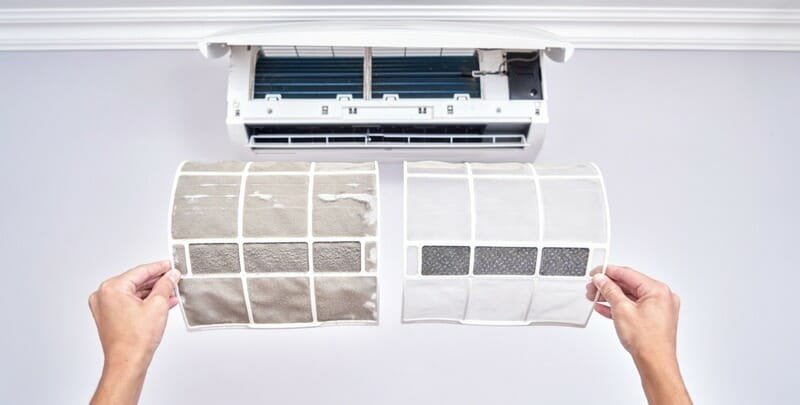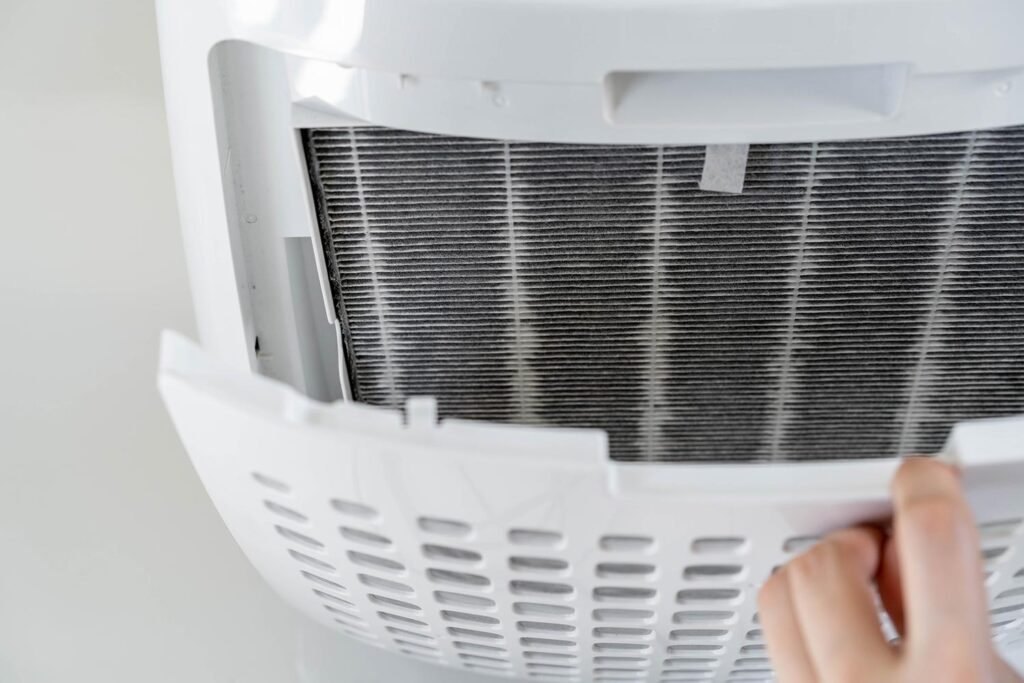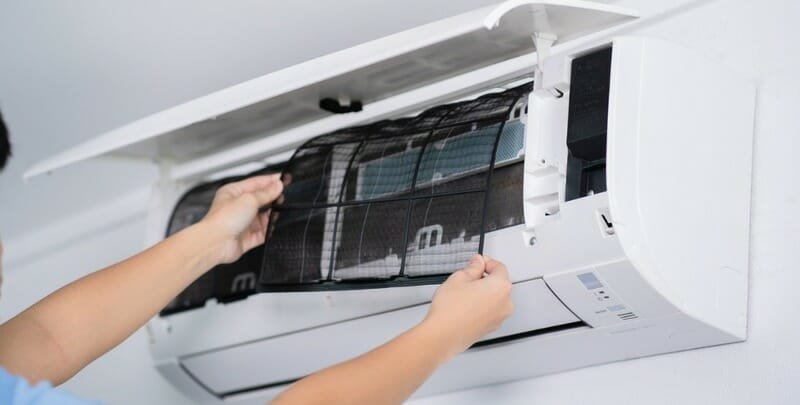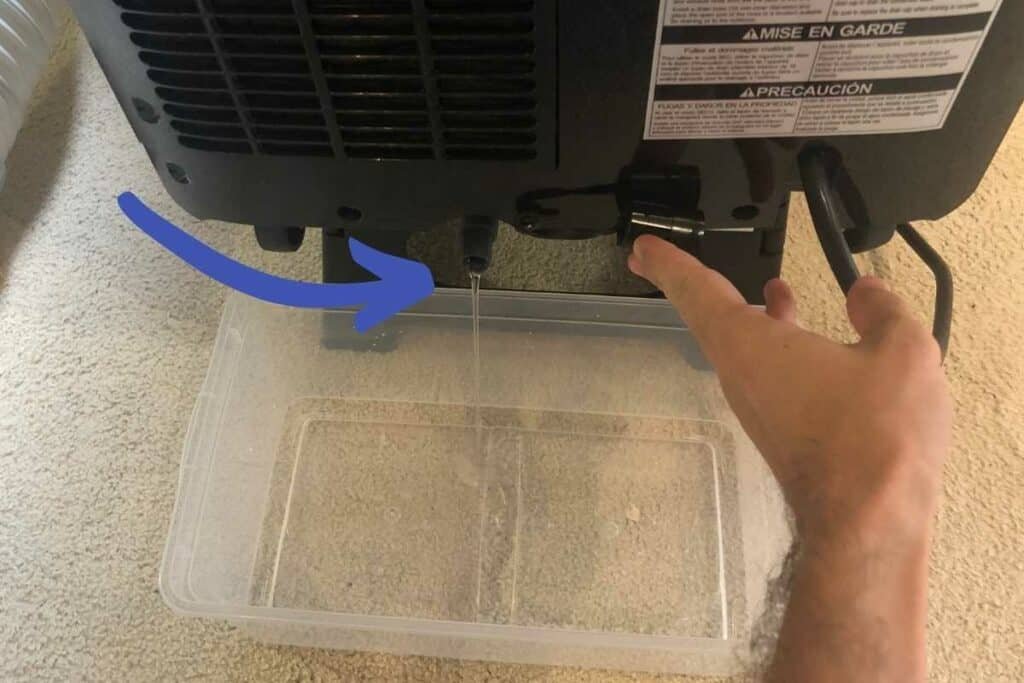Maintaining the filters in your portable air conditioner is essential to ensuring its optimal performance and longevity. Curious about how frequently you should clean or replace these filters? Look no further! This article will provide you with all the information you need to keep your portable air conditioner in top-notch condition. Whether you use it in your home, apartment, or office, understanding the recommended filter maintenance schedule will help you breathe clean, cool air all season long. So, let’s get started and ensure that your portable air conditioner is running efficiently!
Why is it important to clean or replace the filters in a portable air conditioner?
Maintaining optimal air quality
Cleaning or replacing the filters in a portable air conditioner is crucial for maintaining optimal air quality. The filters are responsible for trapping dust, pollen, pet dander, and other airborne particles, preventing them from circulating back into the air. Over time, these trapped particles can accumulate in the filters, reducing their effectiveness and potentially leading to poor indoor air quality. Regular cleaning or replacement of the filters ensures that the air conditioner continues to effectively remove pollutants from the air, providing cleaner and healthier air for you and your family.
Ensuring efficient performance
Dirty and clogged filters can significantly impact the performance of a portable air conditioner. When the filters become clogged with dirt and debris, the airflow is restricted, causing the air conditioner to work harder to cool the room. This increased strain on the system not only reduces its cooling efficiency but also leads to higher energy consumption and increased electricity bills. By regularly cleaning or replacing the filters, you can ensure that the air conditioner operates at its optimal efficiency, keeping you cool while minimizing energy wastage.
Preventing damage to the air conditioner
Another important reason to clean or replace the filters in a portable air conditioner is to prevent damage to the unit itself. When the filters become excessively dirty or clogged, the air conditioner may struggle to draw in sufficient airflow, leading to overheating. Overheating can cause the unit to malfunction or even result in a complete breakdown. By regularly cleaning or replacing the filters, you can help prevent such issues and prolong the lifespan of your portable air conditioner.
Types of filters used in portable air conditioners
Mesh filters
Mesh filters are the most common type of filters used in portable air conditioners. These filters are typically made of a fine mesh material that effectively captures large particles like dust and pet hair. Mesh filters are easy to clean and maintain, as they can be rinsed or vacuumed to remove trapped debris. They are also generally more affordable compared to other types of filters.
Electrostatic filters
Electrostatic filters use an electrostatic charge to attract and trap airborne particles. These filters are highly efficient in capturing smaller particles such as pollen, mold spores, and bacteria. Electrostatic filters are usually washable and reusable, making them more cost-effective in the long run. However, they require more regular cleaning to maintain their effectiveness.
Carbon filters
Carbon filters, also known as activated carbon filters, are designed to remove odors, smoke, and chemical fumes from the air. These filters contain a layer of activated carbon, which has a large surface area that can absorb and trap odorous molecules. Carbon filters are commonly used in portable air conditioners that are used in areas with strong odors or heavy smoke. They are not washable but can be replaced periodically.
HEPA filters
HEPA (High-Efficiency Particulate Air) filters are considered the gold standard in air filtration. These filters are capable of trapping particles as small as 0.3 microns, including dust mites, pollen, pet dander, and certain bacteria. HEPA filters are excellent for people with allergies or asthma, as they significantly improve indoor air quality. These filters typically need to be replaced rather than cleaned due to their intricate design.

This image is property of www.metropolitanairconditioning.com.au.
Factors that affect the frequency of cleaning or replacing filters
Usage hours
One of the primary factors that determine how often you should clean or replace the filters in your portable air conditioner is the number of hours the unit is used each day. The more you use the air conditioner, the faster the filters will accumulate dirt and debris. As a general guideline, if you use the air conditioner for more than four hours per day, you may need to clean or replace the filters more frequently.
Air pollution levels
The level of air pollution in your area also plays a role in determining how often you should clean or replace the filters. If you live in an area with high pollution, such as near a busy road or industrial area, the filters may become dirtier more quickly. In such cases, it is advisable to clean or replace the filters more frequently to maintain good air quality.
Presence of pets
If you have pets in your home, their fur and dander can accumulate in the filters of your portable air conditioner. Pets with long hair or shedding breeds can cause the filters to become clogged faster, reducing their effectiveness. In households with pets, it is recommended to clean or replace the filters more frequently to prevent pet-related allergens from circulating in the air.
Allergy or asthma sufferers
For individuals with allergies or asthma, maintaining clean filters is of utmost importance. Allergens such as pollen, dust mites, and mold spores can trigger allergic reactions or asthma attacks. To minimize the risk, it is advisable to clean or replace the filters more frequently, especially during allergy seasons or in homes where allergy or asthma sufferers reside.
Location of the air conditioner
The location of your portable air conditioner can also impact how often you should clean or replace the filters. If the unit is placed in a dusty or high-traffic area, the filters may become dirtier faster. Additionally, if the air conditioner is placed near an open window or door, it may draw in more outdoor pollutants, requiring more frequent cleaning or replacement of the filters.
How often should I clean the filters?
General guidelines
As a general guideline, it is recommended to clean or replace the filters in a portable air conditioner every two to four weeks. This frequency ensures that the filters remain relatively clean and effective in maintaining good air quality and optimal performance. However, it’s important to note that actual cleaning or replacement intervals may vary based on the factors mentioned earlier.
High-usage scenarios
In high-usage scenarios, where the air conditioner is used for more than four hours a day or in areas with high pollution levels, the filters may require more frequent cleaning or replacement. Consider checking the filters every one to two weeks to assess their condition. If they appear visibly dirty or clogged, it’s time to clean or replace them.
Low-usage scenarios
In low-usage scenarios, where the air conditioner is used for less than four hours a day or in areas with minimal pollution, the filters may require cleaning or replacement every three to four weeks. However, it is essential to monitor the condition of the filters regularly and clean or replace them when necessary.
Air pollution considerations
For individuals living in areas with severe air pollution, such as industrial or highly congested areas, more frequent cleaning or replacement of filters may be necessary. Check the filters every one to two weeks to ensure they are not excessively dirty or clogged. Adjust the cleaning or replacement frequency based on the condition of the filters.
Pet owners’ recommendations
If you have pets in your home, consider cleaning or replacing the filters more often to prevent pet hair and dander from accumulating. Pet owners often find that cleaning or replacing the filters every two to three weeks is necessary to maintain good air quality and prevent pet-related allergies.
Allergy or asthma sufferers’ recommendations
Individuals with allergies or asthma should prioritize clean air filters to minimize allergen exposure. It is recommended to clean or replace the filters every two weeks, especially during allergy seasons. People with severe allergies or asthma may even consider more frequent cleaning or replacement to ensure the filters are as clean as possible.

This image is property of empire-s3-production.bobvila.com.
How to clean the filters in a portable air conditioner
Regularly cleaning the filters in your portable air conditioner is a straightforward process. Follow these steps to effectively clean the filters:
Step 1: Power off and unplug the air conditioner
Before cleaning the filters, ensure that the air conditioner is turned off and unplugged from the power source. This prevents any electrical accidents and ensures your safety during the cleaning process.
Step 2: Locate the air intake and filter compartment
The air intake and filter compartment are usually located at the back or side of the portable air conditioner. Consult the user manual or manufacturer’s instructions to accurately locate the filters.
Step 3: Remove the filter
Once you have located the filter compartment, remove the filter carefully. In most cases, the filters can be easily detached by sliding or pulling them out.
Step 4: Vacuum or rinse the filter
Depending on the type of filter, you can either vacuum or rinse it to remove dirt and debris. For mesh filters, use a vacuum cleaner or brush attachment to gently remove the accumulated dust. If the filter is washable, rinse it with water, ensuring that you follow the manufacturer’s instructions for proper cleaning techniques.
Step 5: Allow the filter to dry
After cleaning, allow the filter to dry completely before reinstalling it in the air conditioner. A wet filter can potentially damage the unit or even promote the growth of mold and mildew. Drying times may vary depending on the filter type and ambient conditions.
Step 6: Reinsert the filter
Once the filter is dry, carefully reinsert it into the filter compartment. Ensure that it is securely fitted and aligned properly to prevent any air leaks or gaps.
Step 7: Power on the air conditioner
After reinserting the filter, you can plug in the air conditioner and turn it back on. Verify that the filter is properly installed and that the air conditioner is functioning correctly.
When should I replace the filters?
Signs of excessive dirt or damage
While regular cleaning can extend the lifespan of filters, there comes a point when replacement is necessary. Signs of excessive dirt, damage, or wear and tear such as holes, tears, or sagginess indicate that the filters need to be replaced. If you are unable to clean the filters thoroughly or restore their original condition, it is time to invest in new filters.
Manufacturer’s recommendations
Many portable air conditioner manufacturers provide guidelines on when to replace the filters. These recommendations are typically based on the specific filter type and the expected lifespan of the filters. Consult the user manual or visit the manufacturer’s website for their suggested replacement intervals.
Average lifespan of different filter types
The lifespan of filters can vary depending on the type and quality of the filter. Mesh filters usually last for around three to six months with proper cleaning, while electrostatic filters can last for up to six to twelve months. Carbon filters typically have a lifespan of six to twelve months, while HEPA filters can last for twelve to eighteen months before needing replacement. However, it’s important to remember that these are average estimates, and the actual lifespan may vary based on usage and environmental factors.

This image is property of storables.com.
Where can I purchase replacement filters?
Online retailers
Many online retailers offer a wide variety of replacement filters for portable air conditioners. Websites such as Amazon, Home Depot, and Walmart provide extensive options to choose from, including different filter types, sizes, and brands. Take note of the specific model or filter size required for your air conditioner to ensure compatibility.
Local home improvement stores
Local home improvement stores, such as Lowe’s or The Home Depot, often carry replacement filters for portable air conditioners. These stores offer the advantage of being able to physically inspect the filters and seek assistance from knowledgeable staff members. Bring the old filter or the air conditioner’s model number with you to ensure you find the appropriate replacement.
Air conditioner manufacturer websites
If you prefer to purchase filters directly from the manufacturer, many air conditioner brands have their own websites where replacement filters can be purchased. By buying from the manufacturer, you can be confident that you are getting the correct filter model and ensuring compatibility with your portable air conditioner.
Tips for maintaining clean filters and improving air quality
Regular dusting and vacuuming
In addition to cleaning or replacing the filters, regular dusting and vacuuming of the surrounding area can help reduce the amount of dirt and debris that enters the air conditioner. Keeping the space around the air conditioner clean minimizes the risk of excessive dirt accumulation and ensures that the filters remain cleaner for longer.
Using air purifiers
In areas with high pollution levels or for individuals with specific health concerns, using an air purifier alongside a portable air conditioner can provide an extra layer of air filtration. Air purifiers are designed to remove additional pollutants, allergens, and odors, contributing to cleaner and healthier indoor air quality.
Keeping doors and windows closed
To prevent the introduction of outdoor pollutants and allergens, it is advisable to keep doors and windows closed while the air conditioner is running. This helps maintain a controlled indoor environment and reduces the strain on the filters to capture airborne particles.
Routine maintenance of the air conditioner
Regularly performing routine maintenance tasks such as cleaning the exterior of the air conditioner, inspecting refrigerant lines, and checking for leaks can contribute to the overall efficiency and lifespan of the unit. A well-maintained air conditioner is less likely to cause unnecessary strain on the filters and can operate more effectively in providing clean and cool air.

This image is property of www.metropolitanairconditioning.com.au.
Common mistakes to avoid when cleaning or replacing filters
Using harsh chemicals or excessive water
When cleaning filters, it is important to avoid using harsh chemicals or excessive water. Harsh chemicals can damage the filter material or leave residues that may be harmful when released into the air. Excessive water can cause the filter to become damp, leading to mold or mildew growth. Follow manufacturer guidelines and use gentle cleaning solutions or methods specifically designed for the filter type.
Neglecting to dry the filter properly
Allowing the filters to dry completely before reinserting them is crucial to prevent damage to the air conditioner and maintain good air quality. Failing to dry the filters adequately can result in a damp filter that promotes the growth of mold and mildew, leading to odors and potential health issues.
Forgetting to regularly check and clean the filter
One common mistake is forgetting to regularly check and clean the filter. Cleaning or replacing the filter should be a routine part of your maintenance schedule to ensure the optimal performance of the portable air conditioner. Failing to clean the filter regularly can lead to reduced air quality, increased energy consumption, and potential damage to the air conditioner.
Conclusion
Regularly cleaning or replacing the filters in your portable air conditioner is essential for maintaining optimal air quality, ensuring efficient performance, and preventing damage to the unit. Understanding the different types of filters used in portable air conditioners and the factors that affect the frequency of cleaning or replacement will help you establish a suitable maintenance routine. Following the provided cleaning steps and knowing when to replace the filters based on signs of excessive dirt or the manufacturer’s recommendations will help keep your air conditioner running smoothly. By prioritizing clean filters and implementing additional measures to improve air quality, you can enjoy cleaner, cooler, and healthier indoor air.

This image is property of hvactrainingshop.com.
